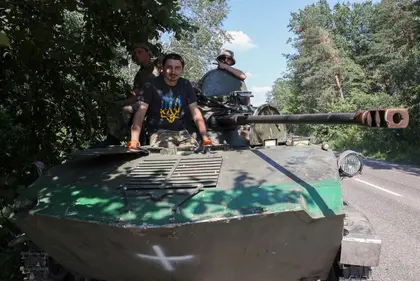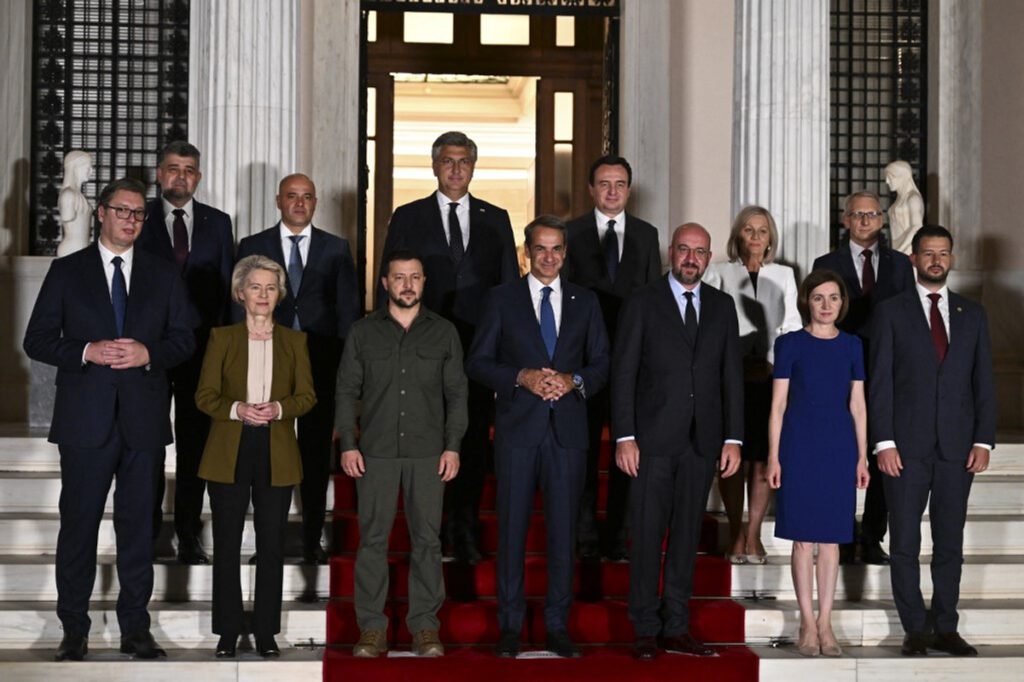On August 21, President Volodymyr Zelensky arrived in Greece to attend the Ukraine-Balkans summit. There, the leaders of 11 southeastern countries sign THE Athens Declaration, reaffirming their support for Ukraine and underlining their commitment to the EU. In doing so, they demonstrated genuine European values, leaving other EU members, including Russia’s proxies, to take notice.
Greek Prime Minister Kyriakos Mitsotakis issued the eight-point statement in which the leaders reiterated their support for Ukraine in the face of Russian aggression, underlining Europe’s commitment to common principles, unity and the rule of law.
Participants welcomed President Zelensky’s principles of peace, in accordance with the UN Charter, and stressed the need for accountability for war crimes committed by Russia. They also recognized the European aspirations of the Western Balkans, Ukraine and Moldova, highlighting their common heritage, history and challenges.
Leaders expressed the importance of a genuine enlargement process for these nations, provided they meet the necessary conditions, and envisioned an EU that would welcome them as full members. They stressed the need for a clear and ambitious objective, which reflects the current geopolitical landscape.
Some were surprised to see the Serbian President alexander Vucic, a traditional ally of Russia, signing the document and meeting with Zelensky. This does not surprise Belgrade observers, as the Serbian president is known for his balance between Moscow and Washington.

Ukraine’s Counteroffensive: Setting Expectations
As Ukrainian forces continue to make slow but steady progress in their counter-offensive, a leading British military expert puts things into perspective.
Vucic’s meeting with Zelensky caused a stir. Viola von Cramon, MEP posted on X (formerly Twitter) that it is very likely that Vucic met with Zelensky “to pressure Ukraine with weapons for the non-recognition of Kosovo”, warning Zelensky of the “political risk” that a such agreement could result.
While the statement sparked controversy among far-right groups in Serbia, Vucic immediately justified his signature on the document and took pride in having negotiated the text and removed “two important points” unacceptable to Serbia. He also justified the removal of sanctions against Russia in the text of the declaration as not being in the interest of Serbia. Serbia’s veto on this should come as no surprise given its allegiance to the Kremlin and its own political stance against sanctions against Russia.
The statement stresses that the Western Balkans, Ukraine and the Republic of Moldova must be “considered as full members of the European family”.
Maia Sandu, the resolutely pro-EU and pro-NATO President of Moldova, declared: “Moldova’s EU membership is an investment in our democracy and regional security. The authorities in Chisinau are firmly committed to implementing the reforms that will allow us to create European living conditions at home.”
Moldova, a staunch supporter of Ukrainian sovereignty, has recently taken a number of steps to suppress Russian influence in its country, including expel 45 Russian diplomats out of the 70 stationed in Chisinau.
Ukraine’s winning formula
Zelensky was the clear winner of the summit, as the dozen leaders strongly supported Ukraine’s claims that Russia had illegally invaded their country and called for the full restoration of its territorial integrity. In the Summit declaration, the leaders meeting “expressed his support and appreciation for the sincere efforts made by Zelensky “to articulate the principles of peace in accordance with the Charter of the United Nations, in his Peace Formula. The statement also “welcomes the efforts of the UN General Assembly to promote a comprehensive, just and lasting peace in Ukraine”.
Despite these warm sentiments, it would be naïve to expect Serbia to join the EU in the near future given the state of its democracy, which Freedom House has called a form of “transitional or hybrid regime” whose the ruling Serbian Progressive Party (SNS) has “constantly eroded political rights and civil liberties”.
The declaration, which emphasizes EU membership, is excellent news and the EU should welcome and encourage such a commitment. However, it is essential that the actions reflect the statements. Although the EU must continue to invest economically and politically in these countries, it must be careful not to allow Serbia and its proxies in the Western Balkans, such as Milorad Dodik in Bosnia and Herzegovina, to slow down the accession process EU candidate states.
Given Vucic’s fear of democratization in Serbia, as well as neighboring states, he will continue to tarnish the image of the rest of the Western Balkans to torpedo their EU membership ambitions. Moldova and Ukraine have clearly demonstrated their determination to fulfill their EU membership obligations, and the EU should avoid postponing their accession until the Western Balkan countries collectively join the Union.
For Ukraine, the summit in Athens was undoubtedly positive: it brought together many regional leaders who spoke out forcefully on the need to support Ukraine more. During Ukraine’s Independence Day week, several European presidents also traveled to Kyiv to endorse its EU membership. In Europe, feelings also seem increasingly favorable to the idea of Ukraine’s future membership in NATO.
The opinions expressed are those of the authors and not necessarily of Kyiv Post.


